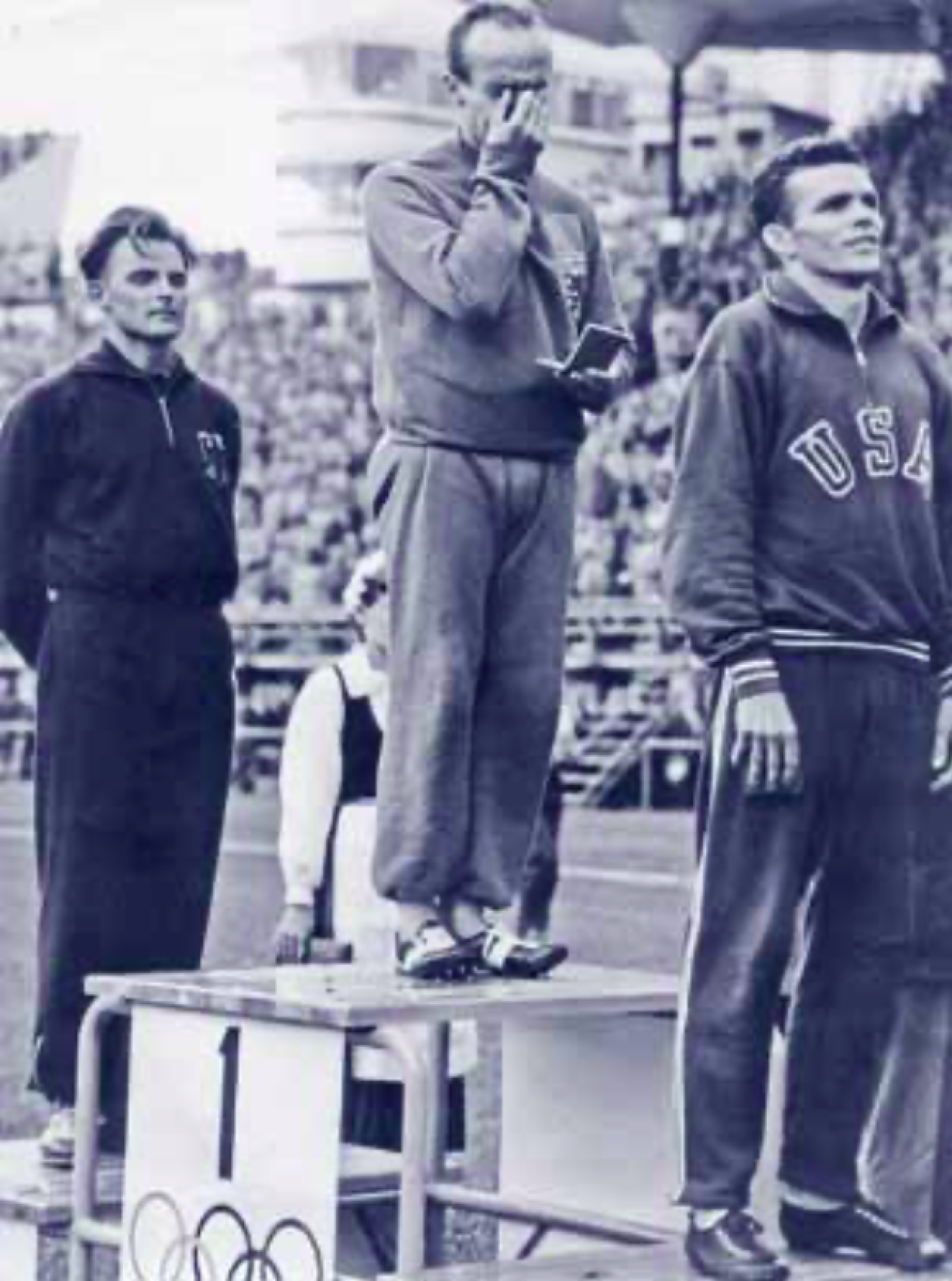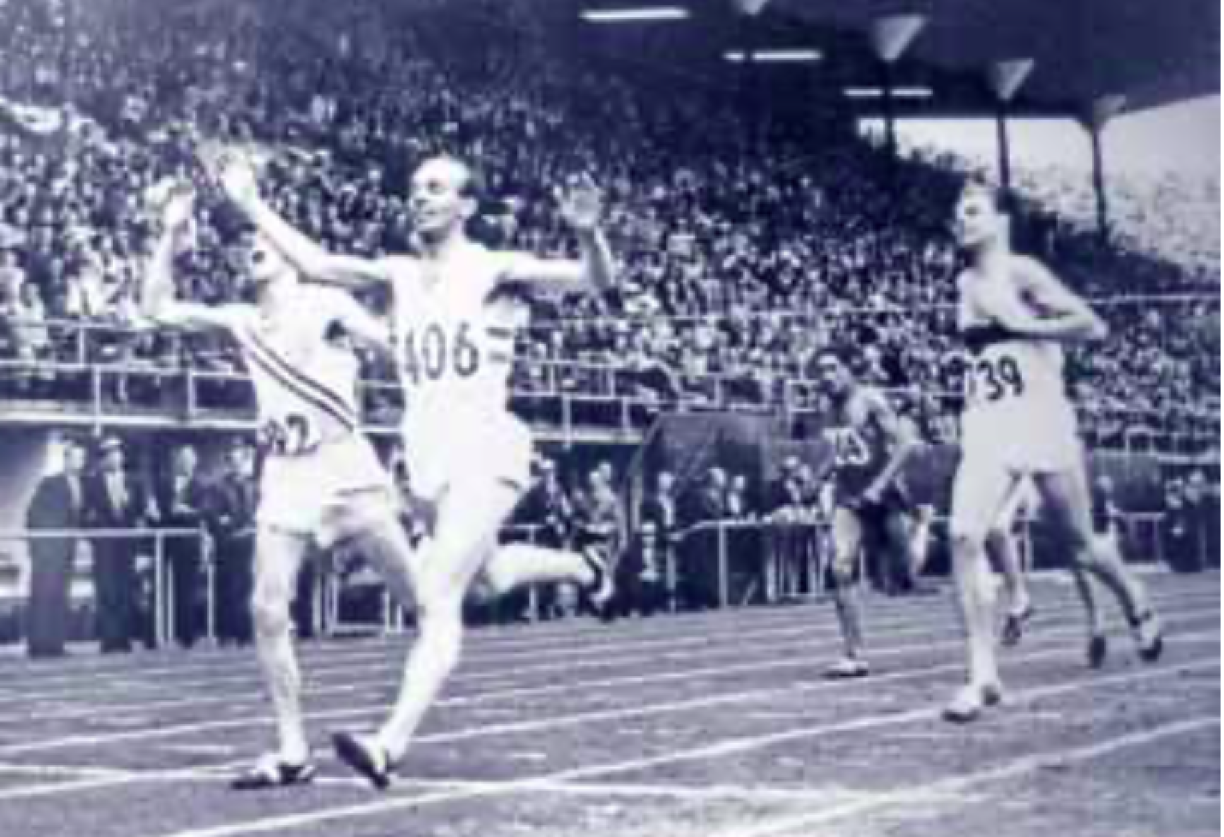
Although Michel Théato, born in Luxembourg, won the marathon at the 1900 Olympics, his victory is not acknowledged by the International Olympic Committee as Luxembourg’s, as he competed for France.
Listen to this episode right here or continue reading down below!
Today, it’s the first episode of a double-header exploring the history of Luxembourg’s participation at the Olympic Games from 1900 to the modern day.
Joseph ‘Josy’ Barthel, born in Mamer in 1927, first caught attention in 1943, when, at just 16, he defeated Luxembourg’s top senior runners in his debut 1500m race in Diekirch. From the outset, Barthel exhibited remarkable finishing speed – a trademark that would define his career.
Called up to serve in the Wehrmacht during the German occupation, he narrowly avoided being sent to the Eastern Front, being only 17 when Luxembourg was liberated in 1944. His breakthrough came at the Military World Championships, where he won the 800m in 1947 and secured both the 800m and 1500m titles in 1948. Between 1949 and 1951, he claimed three gold medals at the Student World Championships.
By then, Barthel had firmly established himself – now the question was whether he could deliver on the global stage.

At the 1948 London Games, his Olympic debut, a 21-year-old Barthel finished 10th in the 1500m and failed to make the 800m final. But it was at the 1952 Helsinki Games that his dreams were realised.
Competing against a strong field, including world-record holder Werner Lueg and future sub-4-minute mile pioneer Roger Bannister, Barthel dominated his heats. By the time the final arrived on 26 July, he was in peak form.
Lueg, aided by pace-setter Rolf Lamers, led by two metres entering the final straight. Yet Barthel’s explosive sprinting proved decisive. He surged ahead, crossing the line with a triumphant smile and arms outstretched in an Olympic record time of 3:45.2.
As he stood on the podium, tears of joy flowed. This moment would mark the peak of his career.
Barthel capitalised on every opportunity as a successful athlete. A trained chemist, he moved to Harvard in 1953 on a scholarship, where he won the 1954 American Championships and came close to breaking the 4-minute barrier just before Bannister did.
Dominating the Luxembourg championships in both the 800 and 1500m from 1946 to 1956, Barthel competed in his third consecutive Olympics at Melbourne 1956 but could not replicate his earlier success, failing to reach the final.
After retiring from competition, he led the Luxembourg Athletics Federation from 1962 to 1972 and chaired the country’s Olympic and Sporting Committee from 1973 to 1977. He also served as Minister for Energy and the Environment for a brief period.
Barthel passed away in July 1992 at 65 following a prolonged illness. His legacy endures, with a school named in his honour in Mamer and, more significantly, the old Josy Barthel National Stadium in Luxembourg City.
Thank you for tuning in! Now what are you waiting for – download and listen, on iTunes, Spotify, or wherever you get your podcasts.